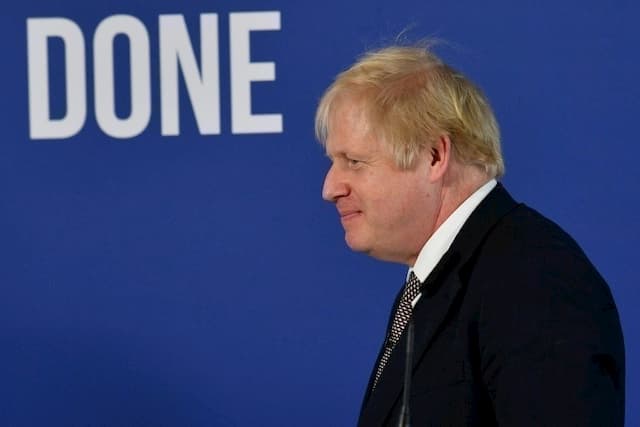Post-Brexit Relations: Boris Johnson wants Agreement in July

The United Kingdom and the European Union resumed discussions Monday 15th June 2020 with a view to finding a favourable commercial relationship for the two parties.
The European Union and the United Kingdom have agreed on Monday 15th June 2020 to give “new impetus” to the post-Brexit negotiations, in an impasse, the British Prime Minister Boris Johnson even setting as a target to be set as early as the month next on the possibility of an agreement.
Leaving the EU on January 31st, the United Kingdom is now negotiating with Brussels in an attempt to establish an advantageous commercial relationship with the European bloc at the end of the transition period ending at the end of the year. The discussions did not allow any real progress as the deadline is fast approaching and with it the risk of a devastating “no deal” for economies already very weakened by the pandemic of new coronavirus.
“New impetus is needed”
Being personally involved for the first time, Boris Johnson met for almost an hour by videoconference with the President of the European Commission, Ursula von der Leyen, the President of the European Council, Charles Michel, the President of the European Parliament David Sassoli and EU negotiator Michel Barnier
“New impetus is needed” to find an agreement by the end of 2020 on the future relationship between London and the EU, the leaders of the two sides acknowledged in a joint statement. They call to find “quickly common ground on the principles underlying any agreement,” said the statement, while the gap is wide between the positions of each other.
Before this virtual summit, the two camps had already agreed to intensify the pace of the discussions, which will take place at a sustained pace throughout the summer.
The calendar is full for July, with meetings every week, sometimes in Brussels, sometimes in London, most of them in small committees, to move forward on the most conflicting files.

An agreement from July?
Given this schedule, Boris Johnson considered it possible for London and Brussels to be fixed as early as next month on their ability to reach an agreement, allowing companies to prepare for the looming scenario.
“The faster the better, there is no reason not to get there in July,” he said.
I don’t want to see this continue until Autumn or winter.
He assured that the positions were “not that far apart”, despite the major differences persisting in the last discussions
“True test”
Among the points of disagreement, guarantees of fair competition in fiscal, social or environmental matters (the “level playing field”, editor’s note), demanded by the EU, which fears that an unregulated economy will emerge at its doorstep. But also the settlement of disputes between the two parties or the explosive question of access to British waters for European fishermen.
The President of the European Council (who represents the 27), Charles Michel, said on Twitter “ready to put a tiger in the engine” but step by step to accept an agreement “with eyes closed”: “The fair conditions of the competition are essential, “he warned.
According to a European source close to the negotiations, “the real test” will take place during the next discussions in late June and early July: “We will then see if there is a real constructive commitment to common objectives”.
In the event of failure, the only rules of the World Trade Organization (WTO), with high customs rights and customs controls, would apply to trade relations between the former partners.
For Michel Barnier, the deadline for an agreement is October 31st, in order to give member states and the United Kingdom time to ratify a treaty on the new relationship, which would enter into force on January 1st, 2021.
British Secretary of State for Commerce Greg Hands recalled on German public radio on Monday that London was only asking for a classic commercial relationship, like that between Canada and the EU, and rejected Brussels’ demands concerning the respect of the conditions of competition.
Enjoyed this? Get the week’s top France stories
One email every Sunday. Unsubscribe anytime.


